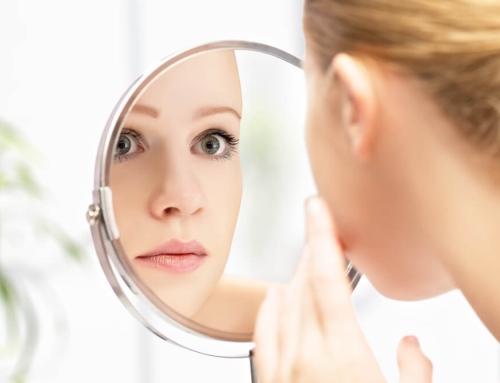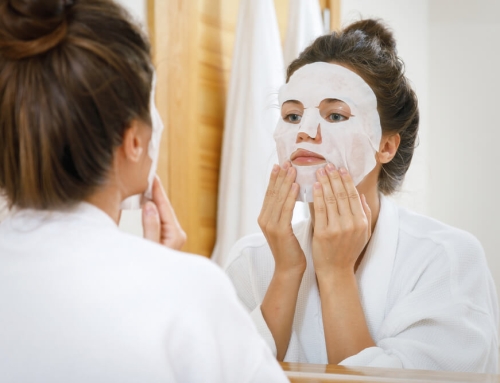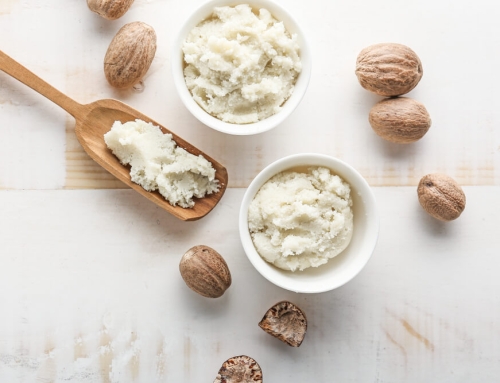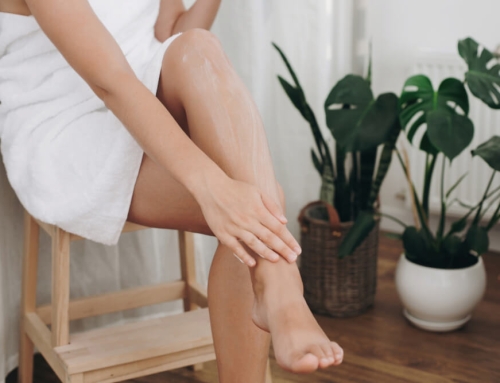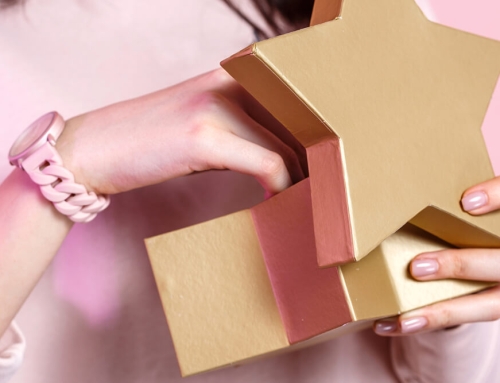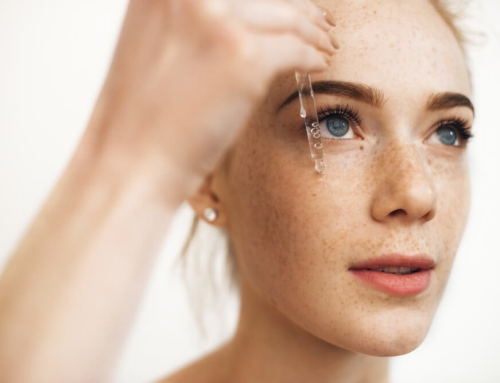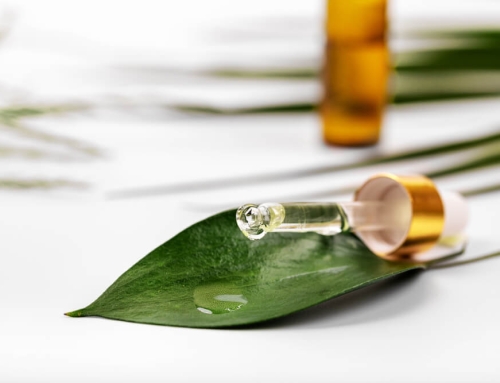Showers are meant to be soothing and refreshing, but if your skin starts to itch each time you step away from the water, showers will soon be something you dread.
Fortunately, chances are that this is something you can resolve yourself at home. The first step is to identify exactly what is causing that itch.
Dryness
As simple as it may sound, the most common reason behind itchy skin after a shower is dryness.
You might be thinking…
Why would my skin be dry immediately after a wet shower?
While you would think that the water from a shower would help to prevent dryness, it can actually have the opposite effect…
Turn Down the Temperature
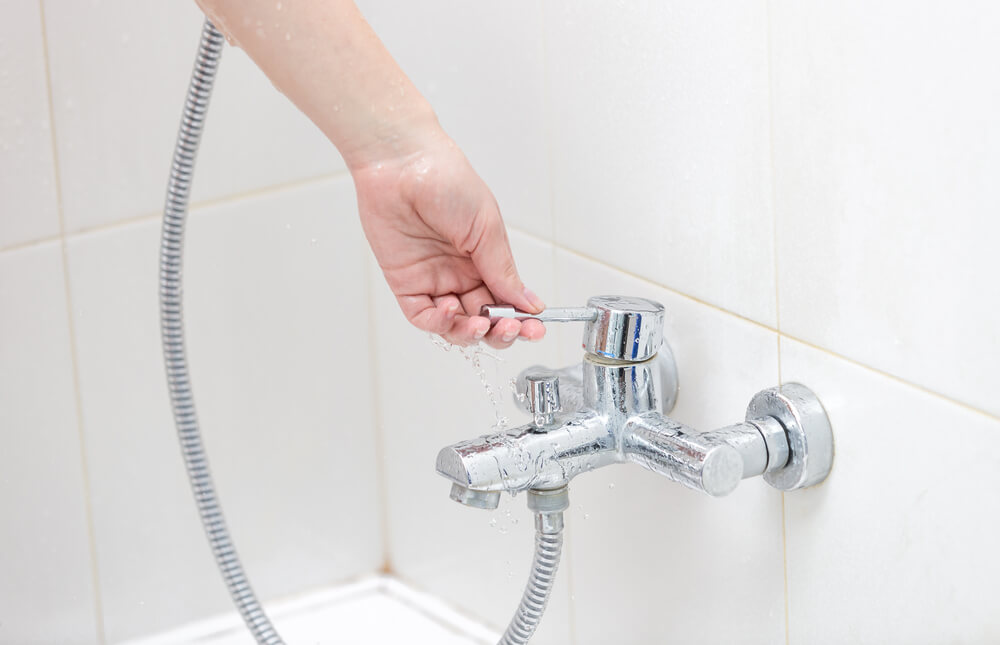
Hot water beating down on your body may feel relaxing, but, the hotter the water, the more damage it causes to your skin.
How?
By stripping away your skin’s natural oils. These oils are vital when it comes to forming a protective layer over your skin’s surface, to prevent moisture from evaporating. When hot water removes these oils, all of that moisture in your skin cells is sucked out into the air as soon as you turn that water off.
Try turning down your water temperature, so that it’s lukewarm instead of hot. Restricting the amount of time you spend in the shower, keeping this between five and seven minutes, could also help to preserve more of your skin’s natural oils.
Replenish Those Oils
For those who have sensitive skin, even a lukewarm shower could strip away your skin’s natural oils. Unless you want to subject yourself to a cold shower every day, it’s important to replenish those oils as soon as you step out of the shower.
How?
By applying a rich and thick moisturizer that contains:
- Humectants – these attract water molecules in the air and send them deep into the skin. Hyaluronic acid and sodium hyaluronate are two of the best.
- Emollients and Occlusives – these form a protective film over the surface of the skin, similar to how your skin’s natural oils work. Plant oils and butters are great for this.
One great product, designed for combating dryness, that contains the above ingredients is the OROGOLD 24K Rose Gold Advanced Cream, which can be used on cleansed skin daily.
Don’t forget to apply your moisturizer onto damp skin
One mistake that many make is waiting until their skin has dried off after a shower before applying a moisturizer.
Why is this a mistake?
Because the protective seal that a good moisturizer forms over the surface of your skin will prevent any water molecules already on your skin from evaporating. Therefore, moisturizing while your skin is still damp, meaning that it contains extra water molecules, will significantly boost your skin’s moisture levels.
A Dry Bathroom
Most bathrooms are quite humid, but, if yours is the opposite, then this could be another reason why your skin is itching after a shower. Whether you use air conditioning or an indoor heating system, dry air can really exacerbate dryness.
How?
Well, dry air is lacking moisture. When it comes into contact with your skin, it pulls out as much moisture as it can, leaving your skin dry.
The best way to increase humidity in a room is with a humidifier. Try to keep the humidity level between 30% and 50% – it won’t be long before you notice the difference in your skin.
Contact Dermatitis
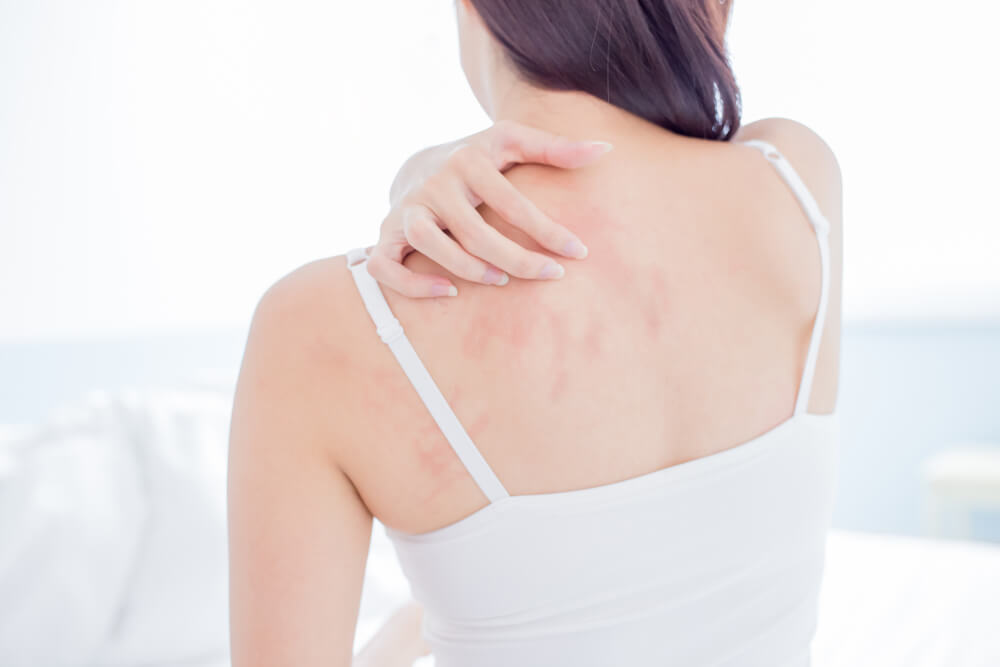
Contact dermatitis is a condition that arises when your skin comes into contact with an irritating substance or an allergen.
There are two types of contact dermatitis; irritant and allergic. Both can be triggered by a shower, leading to itching, and possibly also a rash.
Irritant Contact Dermatitis
Irritant contact dermatitis can affect anyone at any stage in life. Soaps and detergents are common culprits, and, even if you have been using the same soap for years, a reaction to this can suddenly arise.
Allergic Contact Dermatitis
If allergic contact dermatitis is behind your post-shower itching, then this is likely down to an ingredient in one of the products you are using. Just like with irritant contact dermatitis, it can take multiple exposures for the symptoms of allergic contact dermatitis to actually arise.
Avoiding the Irritants and Allergens
It goes without saying that the easiest way to stop your skin from itching after a shower is to simply avoid the irritants and allergens that are causing the reaction.
You probably use multiple products in the shower, so try cutting one out at a time and seeing if that makes a difference. Eventually, you will soon work out which product/s are triggering your contact dermatitis.
Don’t forget to look into your laundry detergent…
If none of your shower products seem to be the cause of your itchy skin, have a think about exactly when the itching starts.
Is it soon after your skin touches your towel?
If so, your laundry detergent could be at play here. Detergents are another common contact dermatitis trigger, so try switching to another brand to see if that makes a difference.
Is Your Water Hard or Soft?
If you live in an area with hard or heavily-chlorinated water, then this could be something else that your skin may be reacting to. The minerals in hard water can settle into the skin, compromising the way in which it is able to keep itself moisturized. It can also act as a skin irritant, triggering contact dermatitis.
What can you do about this?
Shower filters work quite well, removing any harmful substances before they come into contact with your skin.
You can also try incorporating hydroxy acids into your skin care routine, which will help to slough away any residue on the surface of your skin, stimulating your skin’s natural moisturizing processes.
However, be careful which ones you choose if you are already dealing with dry skin. Some hydroxy acids, such as alpha hydroxy acid, may be too much for your skin to deal with at the moment. Opt for something gentler, such as lactic acid or mandelic acid. You will find the latter in the OROGOLD 24K Multi-Vitamin Deep Peeling + Mandelic Acid.
Eczema
Eczema is a chronic condition that manifests on the skin as:
- Itching
- Red rashes
- Small bumps
- Flakiness
As mentioned earlier, a shower can quickly strip away your skin’s natural oils. This, along with the various products that are used in the shower, can easily trigger an eczema flare-up.
Preventing a Post-Shower Eczema Flare-Up
All of the tips already mentioned when it comes to preventing dryness and contact dermatitis should also be followed by those with eczema.
However, there are a few additional steps you can take too:
- Only use non-detergent soaps and cleansers, avoiding anything with bubbles or a lather
- Stay away from rough and hard cleansing products and exfoliants, such as scrubs and loofahs
- Use an allergen- and fragrance-free detergent to wash your towel, and always pat, rather than rub, your body dry. Make sure that your towel is a soft one too
- Apply an oil-based ointment over your skin immediately after showering
Hives
If you’ve read through all of the above and already tried out all those tips, but are still experiencing itchy skin after a shower, then this could be a due to a rarer condition.
For those of you who have noticed a rash accompanying the itch, then hives would be worth considering. There are several different types of hives out there, but there are two in particular you should look into…
Cholinergic Urticaria
This form of hives is triggered by an increase in body temperature. Hot showers aren’t the only cause – if you suffer from cholinergic uticaria, then you will have also experienced flare-ups at other times when your body has gotten too hot, such as after eating spicy foods, or exercising.
Fortunately, this condition tends to be easy to treat. Oral antihistamines are usually prescribed, meaning that you will soon be able to enjoy an itch-free shower.
Aquagenic Urticaria
This form of hives is much rarer, and is caused when water comes into contact with the skin. Again, you would have likely already experienced flare-ups if you are suffering from this, with your skin reacting each time it meets a drop of water.
Although the actual reason behind aquagenic urticaria isn’t yet known, experts believe that it is due to the water dissolving a certain protein within the skin, which then penetrates deeper into the skin’s layers and triggers an allergic reaction.
Just like cholinergic uticaria, this form of hives is usually easily treated with some oral antihistamines.
Does Your Scalp Itch After a Shower?
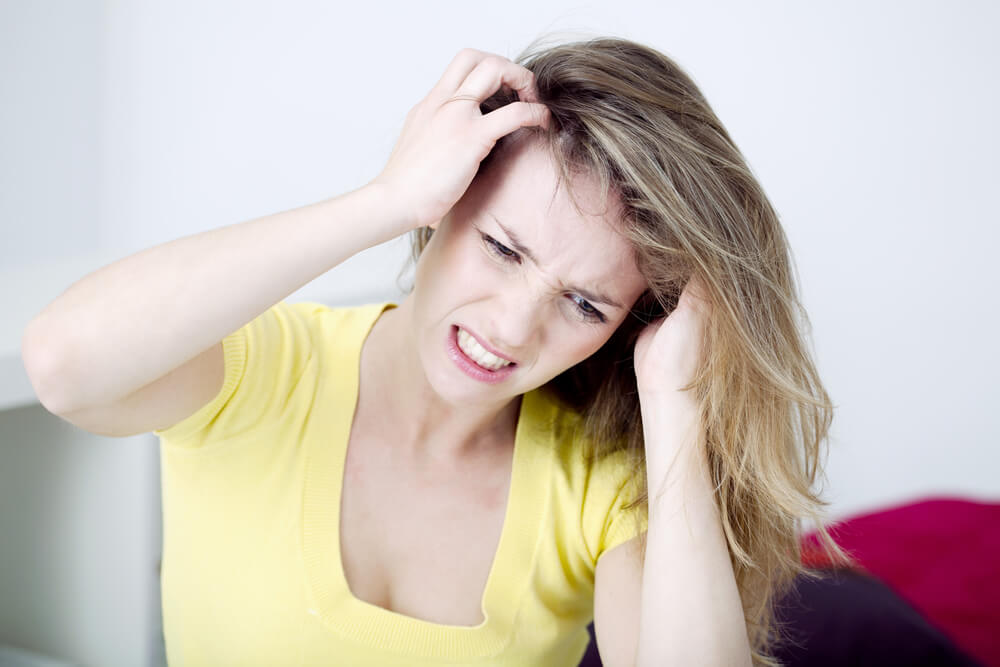
If your post-shower itching is on your scalp, rather than your face or body, this could still be down to some of the same reasons.
Contact dermatitis, both allergic and irritant, can occur on the skin on your scalp too. Fortunately, since you probably only use a shampoo and a conditioner, it’s much easier to narrow down which product is the culprit.
Try using a baby shampoo for a while, but make sure that you still check out its ingredients list first. Some of the big brands contain a surprising amount of damaging chemicals, so make sure that you choose one that really is mild and gentle.
Dryness is another possible cause. Again, this could be down to water that is too hot, since this will be stripping away those natural oils on your scalp.
How often do you shampoo your hair?
If your answer is more than two or three times a week, then over-washing could be another cause. Shampoos are designed to remove excess oils from the scalp, and while your scalp does reproduce these oils, the time in between when it is left dry can be difficult to deal with.
In addition to using a gentler shampoo and conditioner, try cutting down on how often you wash your hair.
Seborrheic Dermatitis
Seborrheic dermatitis is a condition that commonly affects the scalp. It causes redness and inflammation, along with itchy and flaky skin.
Just like eczema, seborrheic dermatitis is a chronic condition. This means that, although you cannot fully treat it, you may not experience a flare-up for several years.
Although medication can help with flare-ups, switching to gentler products and boosting the health of the skin on your scalp are great prevention methods.
You can also try showering last thing at night before you go to bed, and then applying a scalp oil. Leave this on while you sleep, before rinsing it off in the morning. This should help to soften and soothe the skin on your scalp.
Don’t Scratch That Itch!
It may take you some time to identify exactly what is causing your skin to itch after a shower, but, in the meantime, it’s important not to scratch! As tempting as it may be, scratching at your itchy skin will only make matters worse.
What should you do instead?
Try patting or tapping the area. This should still soothe your skin, but without aggravating it further. You could also hold a cold compress, such as a damp cloth, over your skin to calm it down.
Dryness and dermatitis tend to be the most common reasons behind itchy skin after a shower, but there could be other factors at play too. Once you know the cause, you can work on prevention, and it won’t be long before you are once again enjoying that post-shower bliss.


